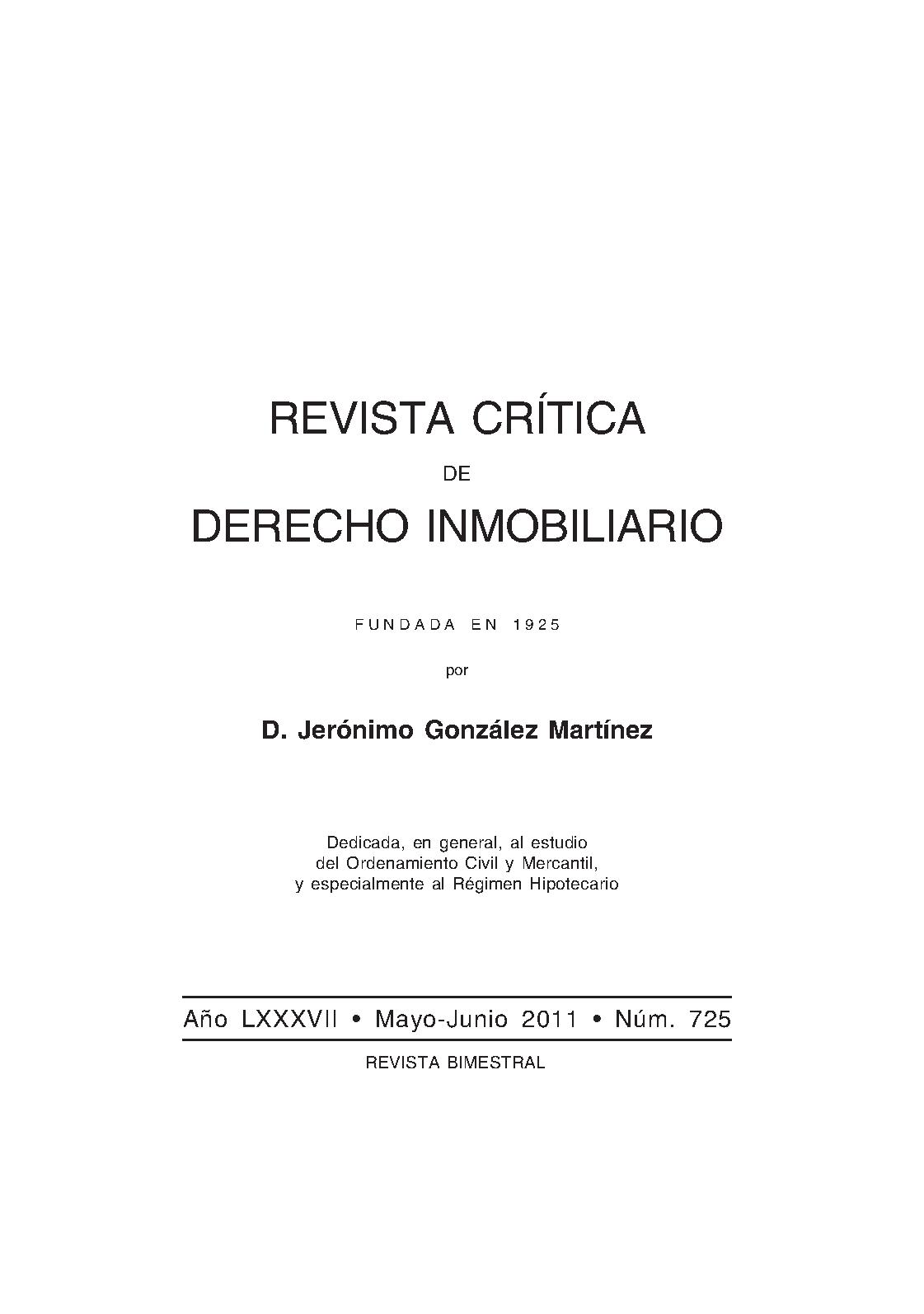EL CONCEPTO DE PROPIEDAD Y SU INCIDENCIA EN LA ACTUAL CRISIS ECONÓMICA.
Keywords:
PROPERTY OWNERSHIP, ABUSE OF RIGHTSAbstract
This study discusses the concept of property ownership from the enactment of the 1889 Spanish Civil Code to the present day. The individualistic conception that Spanish substantive civil law once upheld became out of tune with the conception reigning at the time when it went into force. Important events before and after exerted a well-known corrective influence, lending an important, transcendental social nuance. These events now make -and for decades have made- our concept of property ownership one of the most advanced from the social standpoint and from the standpoint of limitations set on property ownership for the sake of the general interest. From the theory of abuse of rights, the historical Supreme Court ruling of 14 February 1944 (reported by Castán Tobeñas), the formulations that Spanish historical doctrine gathered in authors such as Francisco de Vitoria and the 1978 Constitution itself to modern regulations on horizontal property, development and the environment. They all certainly question the concept given in article 348 of the Civil Code and make it clear that property rights have been often interpreted in a nineteenth-century way, overlooking all the progress that has been made in legislation and doctrine in this field, especially in Spain. Perhaps ignorance of the social function acknowledged as belonging to the Spanish concept of property ownership for over half a century has fanned practices in the worlds of finance and speculation that have to some extent contributed to the onset of the present crisis, which spans diverse spheres.









